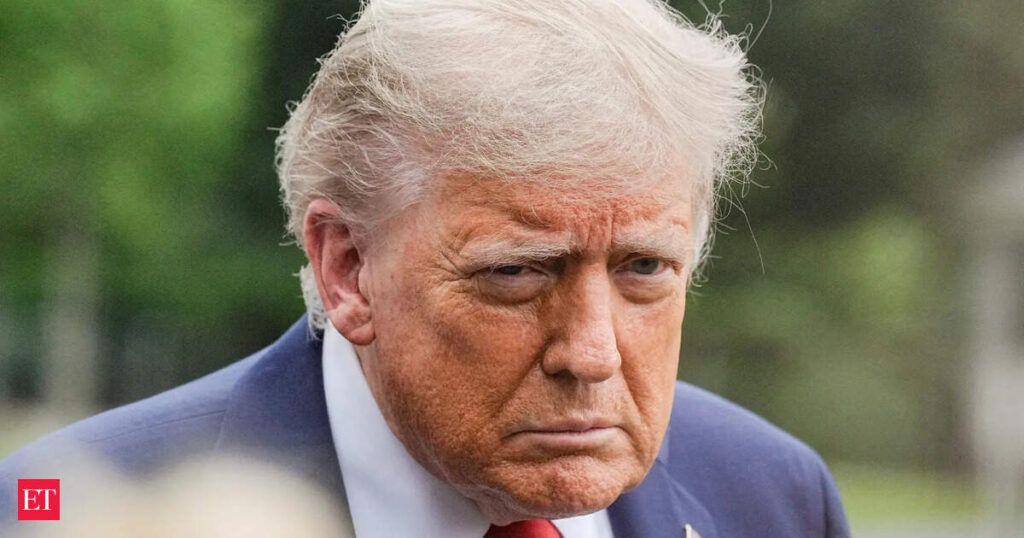At first glance, a lunch between a US president and a foreign army chief might seem like a diplomatic footnote. But in the fraught landscape of South Asian geopolitics, nothing is merely symbolic. Trump’s embrace of Munir is a calculated move, driven by strategic necessity, regional calculations and a personal preference for dealing with strong men.
Pakistan has long been a nation where the real locus of power lies not in the prime minister’s office, but within the General Headquarters (GHQ) in Rawalpindi. The army has ruled directly for nearly half of Pakistan’s post-independence history, and indirectly for much of the rest. Munir is no exception in this long tradition of military supremacy. After playing a pivotal role in the ousting of Imran Khan’s elected government, Munir now presides over Pakistan’s political, economic and security set-up with an iron grip.
For Washington, however, this democratic deficit has historically taken a back seat to strategic calculations. Whether it was fighting the Soviets in Afghanistan in the 1980s or engaging in counterterrorism operations post-9/11, Pakistan’s military has been a necessary, if often treacherous, ally. General Michael Kurilla, the head of US CENTCOM, recently called Pakistan a “phenomenal partner in the counter-terrorism world”, reflecting a continuity of thought that values Pakistan’s geography and military assets over its democratic failings. Given the resurgence of militant groups like ISIS-K in the region and ongoing instability in Afghanistan following the US withdrawal, Pakistan’s geography and intelligence apparatus make it a useful ally. Pakistan offers critical overflight access, potential staging areas and intelligence cooperation that could help prevent another large-scale terror threat to US interests.
 AP
APAsim Munir, Pak army chief
Iran in the background
However, Indian concerns about Munir’s visit to Washington, and especially the optics of a personal lunch with Trump, may actually be unfounded as Trump could be courting the Pakistani military for his goals in the Middle East. Amid Iran-Israel conflict, there are reports of a possible US military operation against Iran after Trump said he was not looking for a ceasefire. If the US were to engage militarily with Iran, Pakistan’s strategic location would be indispensable. Its airspace, logistical networks and surveillance capabilities could serve as vital support nodes. Pakistan’s ability to influence Taliban behavior in Afghanistan adds yet another dimension of utility for Washington, especially as the US continues to recalibrate its regional presence.
As a large Muslim-majority country with nuclear capabilities and deep ties in the Islamic world, Pakistan’s position during a US strike on Iran would matter immensely. Additionally, Pakistan shares a border with Iran through Balochistan, where anti-Iran insurgent groups operate with alleged tacit support from Pakistan. If the Israel-Iran conflict escalates, Pakistan could serve as a quiet front for logistical or intelligence operations for the US military planners.In this light, Munir’s warm reception appears less a nod to his domestic credentials and a blind eye to his anti-India stance but more an acknowledgment of Pakistan’s potential role in any future regional escalation against Iran. Trump’s known disdain for multilateralism and penchant for transactional diplomacy makes such a strategic alignment all the more plausible.
India’s strategic snub
But Washington’s embrace of Munir comes at a price, particularly in its relations with India. For India, the optics of a US president wining and dining Pakistan’s army chief, who is personally committed to spread terror in India, are deeply unsettling. Pakistan’s military has long been accused by India of sponsoring cross-border terrorism, particularly in Kashmir. Munir himself is regarded in Indian intelligence circles as one of the principal architects of Pakistan’s covert operations against Indian interests.
Prime Minister Narendra Modi has made it unmistakably clear that India will not tolerate any attempt to resurrect the old Cold War hyphenation of “India-Pakistan”. Following the G7 Summit in Canada, Modi reportedly declined a face-to-face meeting with Trump on his return leg, citing a prior schedule. The symbolism becomes even more charged if reports are accurate that Trump had hoped to host both Modi and Munir in Washington concurrently, an overture that would have been perceived in New Delhi as equating a democratic partner with an authoritarian military chief and a spectacle that would have greatly diminished India’s newly-acquired uncompromising stance on Pakistan’s anti-India activities.
Modi’s refusal to play along underlines India’s growing confidence on the world stage and its unwillingness to allow legacy US mindsets to dictate regional paradigms.
Trump’s affinity for strongmen is well-documented. From Vladimir Putin to Kim Jong-un, and now Asim Munir, his political instinct tends to favor personalities who project authority, regardless of their democratic credentials. In the case of Pakistan, this personal preference dovetails neatly with strategic exigencies. But the move risks alienating India at a time when New Delhi is being courted by the US as a counterweight to China in the Indo-Pacific. Joint military exercises, technology partnerships and shared concerns over Beijing have made India a cornerstone of Washington’s Asia policy. A visible tilt toward Pakistan, especially its military, could jeopardize this fragile yet burgeoning partnership.
Moreover, Pakistan’s reliability as an ally remains under question. While CENTCOM may praise its cooperation in counterterrorism, on the ground Pakistan has often played both sides, sheltering militants with one hand while cracking down under US pressure with the other. Such duplicity can also undermine any potential military campaign involving Iran or elsewhere.
Trump’s embrace of Munir, if it’s more than a brief transactional alliance due to the Iran angle, comes at the cost of alienating a more stable and democratic ally in India. Whether this is a temporary tactical maneuver or a deeper strategic recalibration remains to be seen. What is clear, though, is that this luncheon is not about food – it is a feast of interests, agendas and high-stakes diplomacy.
Source:https://economictimes.indiatimes.com/news/international/global-trends/donald-trump-asim-munir-israel-iran-war-trump-munir-lunch-india-pakistan-war-pahalgam/articleshow/121933150.cms


